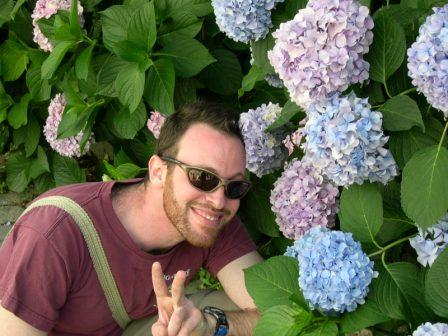If you say so......
To understand a little more about Singapore, and its media, below is the how MM Lee’s visit to the school was covered in the leading (state-controlled) local newspaper.
Except for the title, which to the best of my recollection MM Lee never said, the facts are right. As one professor commented, it includes “all the news thats possible to print”, without any reference to any critical issues.
Govt takes decisions that benefit majority, 4 November 2006
Straits Times
It is a rational process, MM tells students, citing the controversial decision over Integrated Resorts MINISTER Mentor Lee Kuan Yew shared with students Singapore's philosophy of governance which he said was about solving problems to benefit people.The Singapore way is not to pretend to have the perfect solution, but to try and find one that brings about the maximum benefits for the most number of people.
As he said in his opening remarks at an hour-long dialogue with students from the Lee Kuan Yew School of Public Policy: 'If you want to do well, it's up to you. You get your act together, you get your country going, you create order and stability, make learning an advantage in life, make hard work rewarding and not thieving and then you will prosper, the whole country will prosper. That to me is good
governance.'
While the dialogue spanned a myriad topics, from the battle against corruption, to the historical baggage of East Asian nations, one subject kept students on the edge of their seats as they asked him, in different ways, about the art of governance. Giving his take on the subject, Mr Lee said that for the Singapore Government, it was a rational problem-solving process.
'It's not shrouded by superstition, or religious or other biases,' he said in response to a Chinese student who wanted to know the lessons that developing Asian countries could learn from Singapore. 'We are, most of all, rational people who think clearly, and, we hope, effectively come to the right conclusions.' The key is to weigh the balance and make a decision, he said, citing the decision over integrated resorts (IRs) to show how the Singapore Government dealt with 'very difficult questions'.
Despite being personally against gambling and knowing that it would probably do 'some harm' to Singapore, he said he had to accept that it was a changed world now compared to when he was a university student in the 1940s. Then, only French principality Monaco had a casino. Now, they are in many major cities and coming to Asia. And Asians are going to places like Las Vegas, Melbourne and Macau to gamble. Thus, Singapore decided to have one. But not before it set conditions so that families could bar relatives from entering.
'So weighing that balance, we decided yes, we may have casualties, but as against those casualties, the gain in getting these big shows, getting these big conventions to come to Singapore, which goes with the casino which is part of the Integrated Resort, is enormous.' Indeed, land prices at Marina Bay, the site of one of the two IRs, have risen even before the resort is built, he said. And Mr Sheldon Adelson, the owner of Las Vegas Sands. which will build the Marina Bay IR, told him that he was quite confident of bringing thousands of people for conferences to the resort.
Said MM Lee of the casino decision: 'Is it cost-free? I don't think it will be completely cost-free. Is it cost-containable? Yes.' The balance in governance extended to the management of competition and compassion too, he said. Using the yin and yang symbol, he said in response to another question: 'If you have too much of the yang, highly effective, your society will have a certain amount of friction. If you have too much the yin, you lose your drive. 'I think in Singapore's case we've got to keep on moving the balance... At no stage do we take away from the high performers too much, so that they decide 'I'm not going to perform, I'm going to migrate.' Then the music stops.'
He was visiting the Lee Kuan Yew School for the first time since it was officially opened last year, and he also launched Managing Globalization: Lessons From China And India, the first book published by the school. Said Indian student Chetan Shrivastava, 40: 'The dialogue was great, an excellent chance to see a living legend up close. We were extremely fortunate to meet him in person.'



0 Comments:
Post a Comment
<< Home